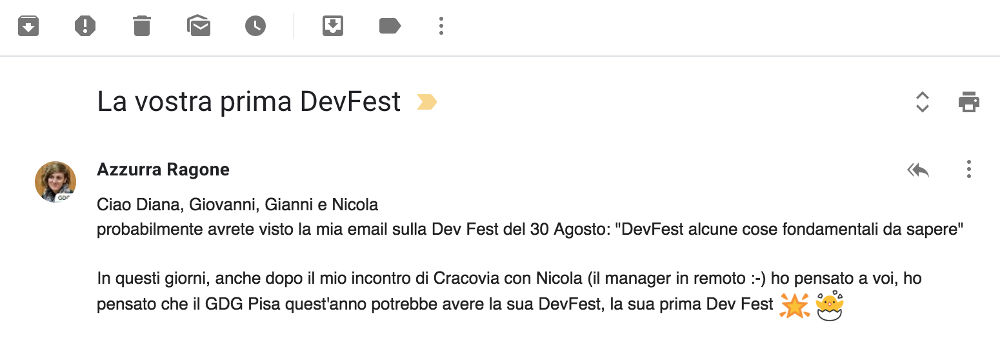There are a lot of resources out there describing what are the skills a community manager should have. Not a surprise, considering how many hats the job requires. But if I have to boil everything down to a single ability, from my experience that would be “being able to effectively ask“.
Community is a behavior-change agent. And nothing changes if it’s not challenged by questions. Because a community managers is the architect of their own community, and responsible for its success, they are the first one that has to ask for that change in behaviors needed to fulfilling the community goals. They can excel in all the other skills, but asking is what make possible to cross the last mile and achieve community success. I would say: “No ask, no party“.
There are, of course, different ways of asking, and the effective part is where all the other skills come in handy. Let’s consider the behavior of joining a community.
Among the many tactics to carry out this objective, a community manager can act in the front line and ask something like “Do you want to join my community?”. However, to be successful, they need to find the right people to reach, and the right time, tone and form to invite them. And there are also several ways to formulate the core question: give a context, explaining the benefits for that person in joining etc. Lot of skills are involved to align all these “rights”.
A less direct tactic, where the community manager is less visible, but still the mastermind behind the main question driving change, would be foster community promotion thru word-of-mouth, asking other members to ask new people to join. Those people won’t be reached directly from the community manager, but it was them influencing the process. Exercise influence, another important skill.
The community commitment curve is another tool that demonstrates how much questions are important for the success of a community: if a community manager doesn’t know what to ask to community members to keep them engaged step after step, new behavior influenced after new behavior influenced, engagement will decrease organically.
And so on, with plenty of other examples: here a community that has organized a dev conference because a community builder asked them. Here the email that lit the event:

For the ones non-Italian, the email says, more or less “During these days, and after a conversation with one if your community managers while we both were in Krakow, I thought about you, and I thought GDG Pisa (the community name NdR) is ready to organize its first DevFest“.
Referring to additional skills required to be effective, it was her call to understand the maturity level of the community, make some preliminary chats to test the water and, only at the end, make the ask.
Still in this community context, when people ask me “How can I find new blood to help me run my in-person community?”, I often reply: “At the beginning or at the end of your event, ask people to help you moving chairs around. The ones volunteering will be good leads to get in touch and ask for additional help, this time for the community”.
This detailed community management case study highlights how much concrete and visible call to actions in the forum banner influenced behaviors and drove success in many important steps to improve the community.
Being able to effectively ask regards also process optimization. As Leslie wrote: “If you’re looking for bug reports and pull requests, encourage them in a few simple ways: Respond to bug reports quickly, ideally within 48 business hours, even if it’s just to let the reporter know you’re looking into it. If you’re asking for speakers, provide a list of events. If you’re asking for new organizer, provide a group where they can plug, a mentor, a guide to help them, everything to not leave them alone. Ask for feedback: provide steps to test and template for feedback for. What you have in mind may (and probably is) different from what others have. Set clear expectation for the kind of help to provide.”
At the end, the functional unit of any community is dialogue. Open and ongoing dialogue transforms a loose group of people with a shared interest into a community that can share stories, support each other, and pursue collective goals. Have you ever had a true dialog _not_ starting with a question?
Photo by Evan Dennis on Unsplash





